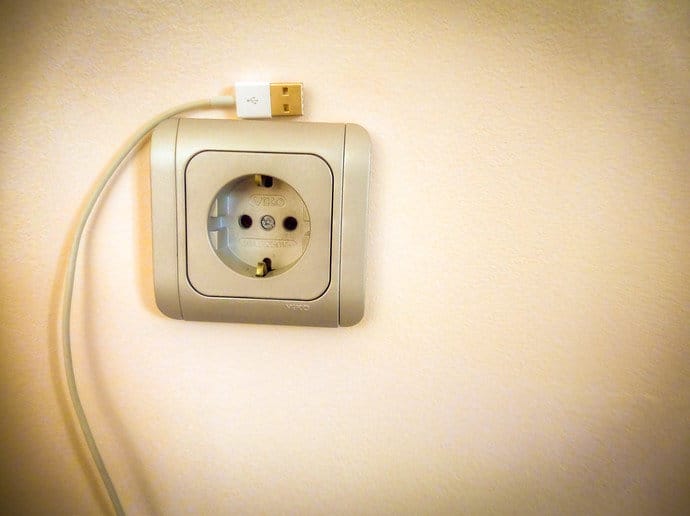
Many of us have had that uneasy and puzzling sensation on the way back from a trip or car ride, that somehow the return didn’t take as long as going there. Perhaps we tend to go slower on unfamiliar roads in a car, but that doesn’t explain why this happens when we take the bus or fly. Yet, it’s a very common sensation that significantly alters our perception of time on any given trip – one that we might be able to battle and bottle for later use.
It turns out that “it’s always quicker coming back” feeling is caused by brain efficiency, expectation, and evolution.
Going Somewhere And Coming Back – Is The Return Somehow Shorter?
In short, no. Studies have been done to gauge this effect with people taking trips where they’re driving and being driven equal distances to a forth from a destination. The effect was still significantly present in both groups – meaning that there isn’t some time warp speeding you up when going back home and you’re not crazy either. 73% of participants in a recent study at Tilburg University had the “return trip effect”.

Use Your Brain And What Happens When You Don’t
According to neuroscientist David Eagleman’s research and recent book, Incognito: The Secret Lives Of The Brain, your conscious self is a tiny fraction of what’s going on in your brain at any given moment. Intuition, hunches, and feelings are often the result of things our unconscious knows, but our consciousness (what we think of as “ourselves”) isn’t given access to. There’s a good reason why our consciousness (think the CEO of a company, aka. your brain) isn’t bothered with all the little details our brains are picking up around us.
It’s like riding a bike years after you’ve learned how. Remember the first time you got on one, concentrating hard to keep balanced and not fall off, while at the same time avoiding fences, cars, and other obstacles. Eventually you learned how to ride and all of those details got pushed into your unconsciousness. Think just how annoying it would be to notice every little thing on the road again – so, your consciousness is only alerted when it needs to be – like, “WATCH OUT FALLEN TREE ON THE PATH!”
Likewise, when you’re going somewhere, you tend to be much more focused consciously of all the details involved – using a new self-check-in, where’s my gate, what is the layout of this airport, will passport control understand my broken Spanish, etc. On the way back your brain doesn’t serve up the inconsequential observations to your consciousness. That gives you more time to focus on other things (like hacking luggage fees) and makes your brain function more efficiently too.
 Problems Of Perception- We All Suck At Estimating
Problems Of Perception- We All Suck At Estimating
Time is relative and so is our perception of it. The “return-trip effect” is the result of being let down by our expectations – we often believe the initial trip will take less time than it actually does. Without having done the trip before (or in a long time) our Paleolithic brains simply fail miserably at estimating time. On the way back we have a better idea of how long a trip should take so it’s not as disappointing the second time around.
- How Strong Is The Return Trip Effect? – According to the same Tilburg University study mentioned above, the participants felt their return trips took 20% less time than the initial journey.
In some ways this study goes against the unconscious theory but they’re really the same general idea. Now that we know how it works, we can hack it to make any trip seem shorter.
 How To Make Your Initial Trips Feel Shorter
How To Make Your Initial Trips Feel Shorter
Participants in the Tilburn study had greatly reduced or eliminated their return-trip effect when told by researchers that the first ride would be a “long trip”. Since they expected a long trip, they didn’t feel like the return took any less time. Consequently, they felt like the initial trip took less time overall. Now that you’ve lowered your expectations, let’s shut off that consciousness when appropriate.
- Listen To Your Favorite Album – Music has a very complex effect on the human mind and familiar music you enjoy (that’s slightly uptempo) stimulates your long-term memory. Getting your long-term memories loaded into your consciousness (aka. reminiscing) can distract you enough to make any trip seem shorter than it is. Music is an effective tool, so long as it’s familiar and the songs evoke some emotion for you.
- Sleep – Turn off your consciousness completely.
- Refocus Your Consciousness – When possible, use as much of your consciousness as possible to keep it occupied; reading novels and learning new tasks are two of most engaging ways. International travelers can learn these 4 universally handy phrases or check out these engaging reads (a short scroll down).
A combination of familiarity with routine and expectation can change how long any trip feels but don’t forget its benefits. Often, being overly-conscious of your path prevents you from getting lost, scammed, and hopping on the wrong flight. I tend to be zoned out into my own little world more often than not – maybe explaining why I get lost everywhere, even on paths I’ve taken multiple times. It might also explain why your frequent traveling buddies and I might not think an 8-hour flight is that long.












Hi Anil,
My favourite trick to make the initial trip feel shorter is to look at maps and research the route before going. For example, looking at airport layouts shown in the in-flight magazine, or reading map of a city, even looking at google street view if that’s available. It literally saves me tons of time but more importantly, the trip feels shorter and comfortable.
That seems to confirm the expectation-bias in the studies above and probably keeps you from getting lost more often than not too!
Sometimes I don’t want the trip to feel shorter! The anticipation of getting there can be part of the whole journey!
haha, depends on how much leg room I have in that bus, car, or plane!
I think that excitement I get when traveling somewhere new makes the trip seem longer– you know, just because I’m waiting in anticipation! The trip home is always so quick because I’m never ready to go home…
haha, another way of looking at it 🙂
I very often have this experience, especially when hiking. I have always attributed it to the fact that when I am going somewhere new the territory is unknown and unexpected, but on the way back it is known and familiar, making the route seem shorter.
It’s much like driving to work everyday for example; often you can arrive at the office without even realizing how or remembering details on you got there. The mind running on autopilot in a sense.
Agree with Barbara Weibel on that one. I always think it’s going to take a long time to get back to our starting point when hiking and it never does. I think it’s because you’re familiar with the path and go off into your own world, not concentrating on the route.
The expectation bias is very strong; it would be interesting to see how this effects different cultures who are more or less on time or give importance to it. Like in Turkey where an hour doesn’t quite mean an hour or in Austria where it’s down to the second 😉
I have to agree with the consensus here that the return journey is a known and thus feels shorter as we can landmark spots that signify we are closer to home !
I always try to meditate when travelling which seems to have an effect – although its not such a great idea if i am driving !
Great Post
Tristan
Sort of, though even adjusting the expectation of how long a route will take alters perceptions of time. In the the study when participants were told to expect a long journey and quick return and felt the opposite for both.
I imagine it like the CEO of the brain (our consciousness) making engineering estimates (this widget will take 10 days to manufacture), then feeling like something’s wrong when it really ends up taking 14 days. When the next similar widget comes along, CEO expects it and isn’t as surprised when it takes 2 weeks (though I’m guessing CEO will still try to shave some time off of that.) That’s when we speed in the car I guess 😛 but not while meditating! 😉
Pshh, coming back alwwwwaaayysss seems longer to me!
Outlier! you’d be in the other 27% of the study 🙂
Ha! we are part of that 73%. It’s so totally, true. Especially noticeable when hiking, and we do a lot of hiking!
Interesting you mention that, I find the return-trip effect especially noticeable when traveling by foot.